Reception Science – Forces
Today the children learnt about forces, and they focused on the push and pull force. During our carpet session we explored different objects we could push and
In Early Years, children learn through playing, exploring and being active, and much of the learning in the EYFS is child initiated. All seven areas of the curriculum are used by our Early Years teachers to plan learning activities suited to each child’s individual needs. All children have access to a range of learning activities both inside and outside the classroom that support their own progress. Children are encouraged to work both independently when making their own learning choices and also to work collaboratively with others.
EYFS staff make regular detailed assessments of all children to ensure that good progress is made by all children. These observations are recorded on Tapestry which is an online platform that parents have access to view from home. Observations from home and school can be shared on this platform by video, picture and written observations. The children also have a Folder to save and share the hard copies of their valued work.
Please choose from the following options:
Please watch this EYFS video tour for more information about our school.
Our Early Years classes follow the national Early Years Foundation Stage (EYFS) Framework, which has seven main areas of development. Through developmentally appropriate play, including both adult and child initiated learning activities, we offer learning experiences that will enable all children to develop the knowledge, skills and understanding to progress towards their early learning goals and to be ready for the next stage of life and learning.
The Early Years framework is divided into seven areas. Three ‘prime’ areas are crucial for igniting children’s curiosity and enthusiasm for learning, and for building their capacity to learn, form relationships and thrive. Children start to focus on these prime areas between the ages of three and four and they are the most essential for your child’s healthy development and future learning.
Communication and language – Development involves giving children opportunities to experience a rich language environment; to develop their confidence and skills in expressing themselves; and to speak and listen in a range of situations. Children are encouraged to extend their vocabulary and fluency by talking and listening and by hearing and responding to stories, songs and rhymes.
Physical development – Children are encouraged to be active and interactive; and to develop their co-ordination, control, and movement. Children must also be helped to understand the importance of physical activity, and to make healthy choices in relation to food. A range of equipment and opportunities both indoors and outdoors allows children to develop confidence and enjoyment in the use of their bodily skills. Adult support enables children to safely create and meet physical challenges, developing increasing skill and control in moving, climbing and balancing. Physical skills are taught through a clear sequence of progression by the school’s PE coach once a week. Children are also supported in the development of fine motor skills required to use tools, including pens and pencils and to handle small objects with increasing control and precision.
Personal, social and emotional development – Children are taught to develop a positive sense of themselves, and others, to form positive relationships and develop respect for others; to develop social skills and learn how to manage their feelings; to understand appropriate behaviour in groups; and to have confidence in their own abilities. Within a nurturing environment, children are individually supported in developing confidence, autonomy and self-respect. They are encouraged to work and concentrate independently and also take part in the life of the class, sharing and co-operating with other children and adults. We use the “Zones of Regulation” to help support children in identifying and regulating their emotions. We teach children strategies to help self sooth and thus enabling them to manage their feelings and behaviour. We deliver a programme called “MindUp” which teaches children the function of the brain and how to care and look after their mental health. The children practise Brain Breaks three times a day which is a mindfulness practise.
As children grow, the prime areas are strengthened and these will help them to develop skills in the four specific areas.
Literacy – Development involves encouraging children to link sounds and letters and to read and write. Children are taught to read and write through by use of phonics. Click here for more information about phonics. Children are given access to a wide range of reading materials to ignite their interest giving every child the opportunity and encouragement to become familiar with books. They learn how to handle them carefully and be aware of their uses, both for reference and as a source of stories and pictures. Books are shared daily in small groups and as a whole class, and individual reading books are sent home to be shared at home.
Mathematics – Children are given opportunities to develop and improve their skills in counting, understanding and using numbers, calculating simple addition and subtraction problems; and to describe shapes, spaces, and measures. By means of adult-supported, practical and child initiated activities, children become familiar with sorting, matching, ordering, sequencing and counting activities which form the basis for early mathematics.
Understanding the world – Children are encouraged to make sense of their physical world and their community through opportunities to explore, observe and find out about people, places, technology and the environment. A safe and stimulating environment allows children to explore and experiment with a range of natural and manufactured materials. They learn to observe the features of objects and substances, recognising differences, patterns and similarities, and to share and record their findings. Children explore and understand their environment within the class and within the wider community.
Expressive arts and design – Children explore and play with a wide range of media and materials, and are encouraged to share their thoughts, ideas and feelings through a variety of activities in art, music, movement, dance, role-play, and design and technology. A variety of art equipment is available for all children to explore, including paint, glue, crayons, pencils, pens, chalks, pastels and natural/man made materials. Children participate in specialist teaching of music weekly where they practise rhythm, rhyme, explore instruments and build a repertoire of favourite songs.
Please click on a heading below for more.
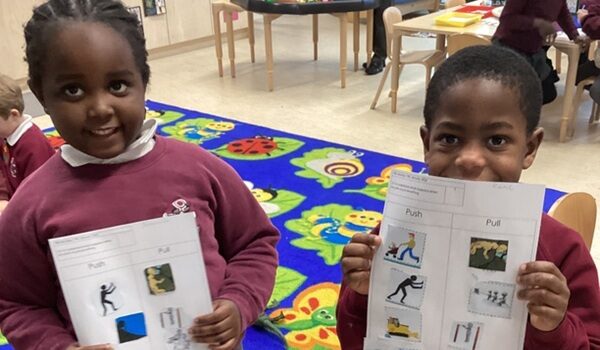
Today the children learnt about forces, and they focused on the push and pull force. During our carpet session we explored different objects we could push and
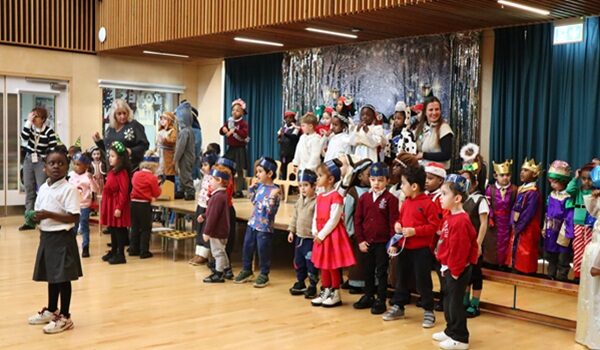
This morning, we all enjoyed a fabulous performance by our early years children as they created their interpretation of The Nativity Story for us all to ooh and

This morning, we all enjoyed a fabulous performance by our early years children as they created their interpretation of The Nativity Story for us all to ooh and
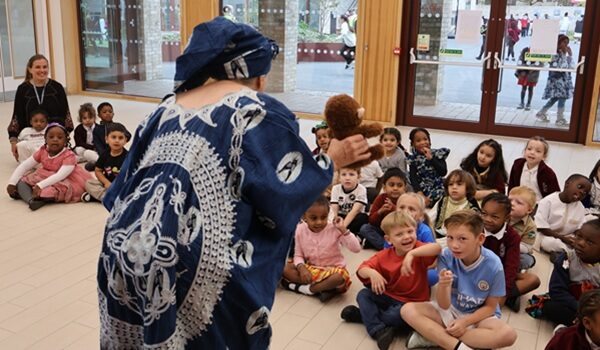
We would like to say a huge thank you to all our amazing parents and carers who helped to make our International Day such a

This half term one of our topics has been Mini beast and the other is finding out

Reception classes are taking part in a competition run by the Young Artists Group, which requires the children

Its the last day of term and what better way to close the year than with a magnificent Christmas performance by our amazing Nursery class. There first performance ever!!

This morning at Rotherhithe Primary School our amazing, young and extremely talented Reception classes performed a fabulous telling of the Nativity story to lots of oohs and awwwws from

Children’s Book Project Children who read regularly and for pleasure do better academically. They are exposed to new vocabulary

This week our Nursery children have been reading “Room on the Broom” by Julia Donaldson. Room on a Broom is a fun book about a kind witch who invites a
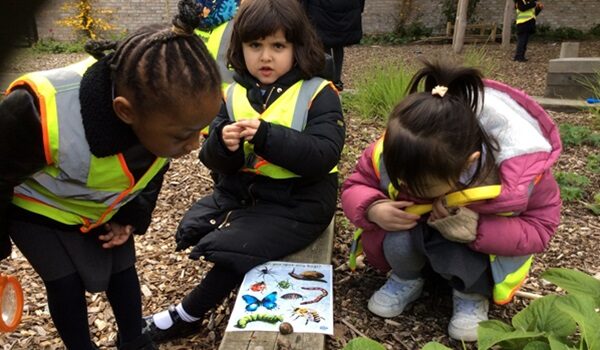
The sun was beaming down on early years this week so what better way to spend a morning than outdoor learning at Forest School.
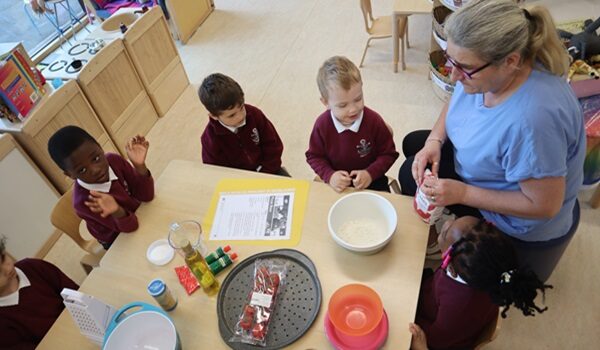
Our Nursery Class transformed into a little Pizzeria this morning as Heather and the children got busy preparing Pizza dough
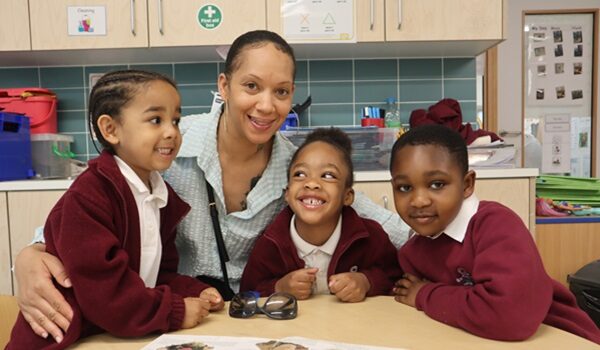
We’re inviting parents to come in for a Reading Café to select a book with their child and read with them. Today we joined Reception parents for their children’s Reading
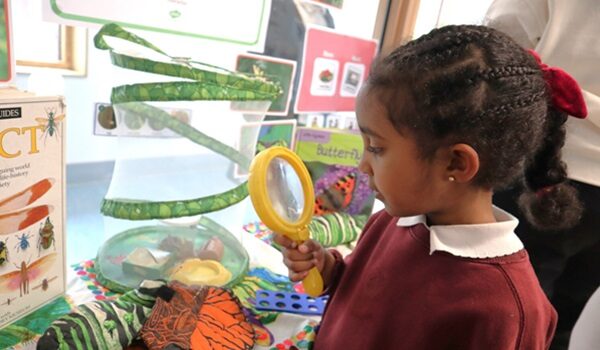
Over the past week, our Nursery children have been making friends with a couple of new arrivals. Our Caterpillars! It has been a lot of fun and very interesting
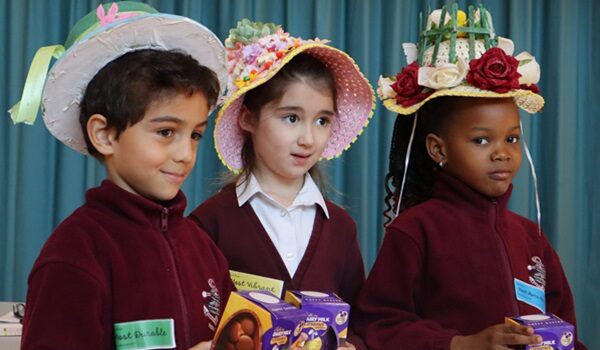
What a fantastic build up to Easter. The Easter Bonnet Parade this morning was a real spectacle. A huge well done to all of our talented
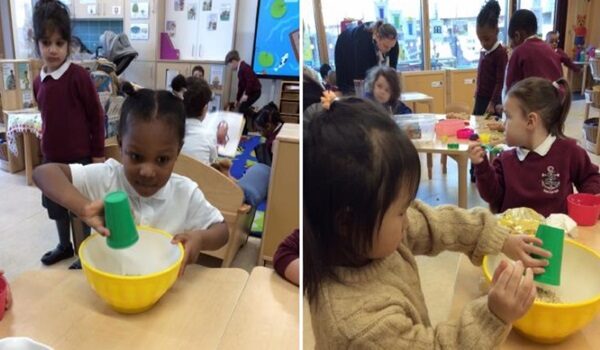
In nursery, the children have been reading the story ‘Goldilocks and the Three Bears’. In the spirit of the story, they had the
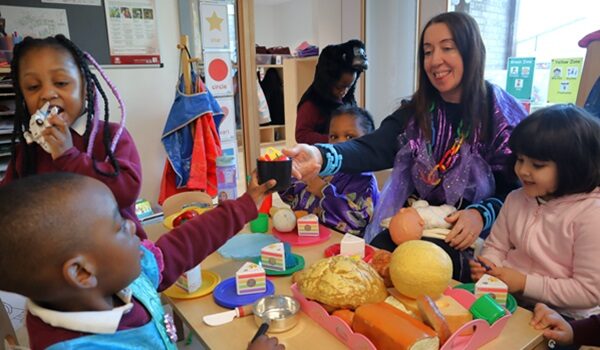
What a great start to 2024 our Nursery children have had. With a new year and a new term well underway, the children are getting to grips with the many learning

This week at Forest School the children learned how to safely use tools. Some children removed the bark from the sticks using peelers whilst other children went on